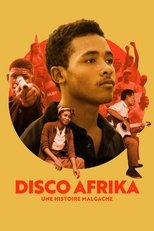Brent Marchant
Nov 21, 2024
7/10
An old saying maintains that “Those who don’t learn from history are destined to repeat it.” But an arguably more accurate take on that sentiment was espoused by author Mark Twain, who asserted that “History doesn’t repeat itself, but it often rhymes.” That thinking is perhaps one of the most precise ways of describing the history of the African island nation of Madagascar since gaining its independence from France in 1960. In the time since then, the country has undergone a series of uprisings between rival factions on the right and left, with the nation’s residents – the Malagasy people – caught in the middle, suffering the social, political and economic consequences, conditions that have continued virtually unabated to this day. In his second feature outing, writer-director Luck Razanajaona has brought these circumstances to light in a project that has taken years to complete, one set in contemporary Madagascar but that, realistically speaking, could have taken place almost at any time since the 1970s. The film follows 20-year-old Kwame (Parista Sambo), an independent prospector clandestinely panning for gems in the nation’s sapphire reserves in hopes of striking it rich to provide for his aging mother (Laurette Ramasinjanahary). But, when an unexpected tragedy occurs, he’s forced to return home to save himself and regroup. Once there, though, while searching for work, he soon becomes caught up between rival factions seeking to maintain power and reformers looking to oust those who have made life miserable for everyday Malagasies. At the same time, Kwame faces a moral dilemma – whether to remain loyal to an influential but shady childhood companion, Idi (Joe Clarence Lerova), who promises to help him find the remains of his deceased father (a murder victim killed by authorities years earlier), or to expose the corruption of his seemingly respectable friend to those seeking sociopolitical reform. It’s a difficult choice for someone so young and inexperienced, but finding a way to reconcile these options is essential to staying alive in such a volatile environment. The filmmaker creates undeniable tension in this story as it plays out, shining a bright light on a nation whose internal struggles are palpable but little known or understood to the outside world. What’s more, this offering features innovative ways of chronicling the nature of the island nation’s troubles, such as showing the influence of music in their unfolding (hence the title), as well as the surrealistic impact of deceased ancestors guiding the living through their ordeals. Admittedly, this release might have benefitted from some additional back story references (at least for viewers from outside of the region), but, as a film almost certainly made for audiences already familiar with these events, their inclusion here might have seemed a little too obvious or heavy-handed. “Disco Afrika” speaks volumes about its nation’s status and does so with great candor and eloquence in telling the story of a people desperate for change and the difficulties involved in realizing it, no matter how hard they work at it.
